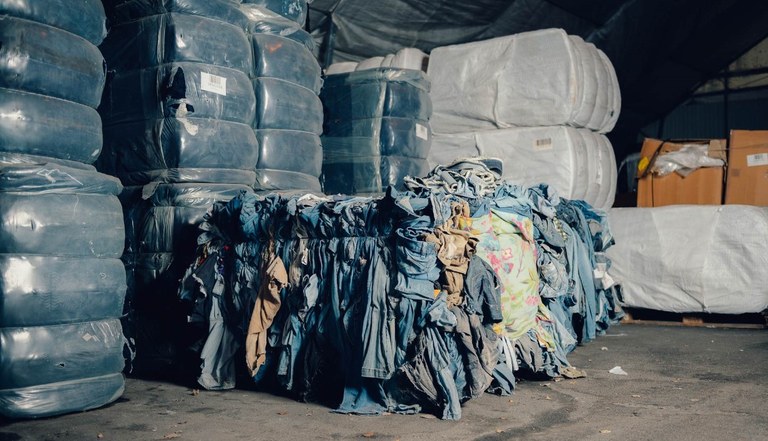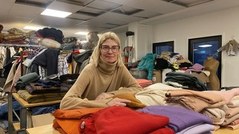Renewcell awarded the Nordic Council Environment Prize for clothes recycling
Swedish company Renewcell has won the 2023 Nordic Council Environment Prize for its groundbreaking solution for recycling and reusing textiles into new clothes and products.
Martin Stenfors, head of strategy and sustainability, received the prize during the Nordic Council’s gala at the Oslo Opera.
“This prize is an enormous recognition. We have done a big job since we started out in 2012. Taking a good idea from the research stage all the way to building a new industry in Sweden is quite a challenging process. Being appreciated and seeing that we are not alone in thinking this is an important issue is a huge deal for us," Martin Stenfors told the Nordic Labour Journal right after the awards ceremony.
The theme for this year’s environment prize was the sustainable production and consumption of textiles. There were seven nominees. Swedes buy on average 14 kilos of new clothes and textiles per person every year. But a lot of this is never used. Nearly eight kilos are thrown in household waste and incinerated.
Chucking 80,000 tonnnes
“Swedes throw away around 80,000 tonnes of clothing. At our plant in Sundsvall, when we scale it up, we will be able to process 60,000 tonnes a year,” says Martin Stenfors.
Renewcell does not manufacture the fibre products themselves in the form of textiles like viscose and lyocell but makes the raw material for them.

Renewcell's raw material can be old jeans – but not sports clothing. It has to be cotton or wool socks. Photo: Alexander Donka.
“It is a type of pulp. Today, this raw material is made from forest wood. We use the cellulose in discarded, cotton-rich clothes instead and manufacture the same product. We remove textile waste from incineration while the trees in the forests can be used for other things than making clothes.”
Renewcell calls their cellulose mass product cirkulose. Both H&M and Levi’s already use it in their collections. The company employs 130 people, most at a factory in Ortviken near Sundsvall in Sweden.
Renewcell earlier announced having signed a contract with Chinese Tanghsan Sanyou, one of the world’s largest viscose fibre producers. The contract runs for five years and is worth over two billion Swedish kronor (€169m).
“This is huge for us and in fact for the entire industry, where longer-term contracts are unusual. We will deliver 40,000 tonnes of mass every year to Tangshan Sanyou, which means we have already sold two-thirds of our future capacity in Ortviken,” Patrik Lundström, the Renewcell CEO, told Di Digital when the news broke.

Renewcell has moved into the Swedish cellulose company SCA’s old pulp and paper factory. In 2020, SCA decided to close down production of printing paper, which had employed 700 people. Photo: Henrik Bodin.
Renewcell looks like a paper factory, but old jeans have replaced timber as the raw material.
“We partly use the same machines as a paper factory. Our drying machine that dries the pulp is a second-hand machine, although it is not from SCA. Their localities were perfect for our production and former employees became a resource for us.
“We are now planning to scale up to produce 360,000 tonnes. This should generate 500 jobs. This is a processing industry after all, so it is not very labour-intensive. Most jobs are linked to controlling the process through screens. But there will be more jobs in total since there is an increasing demand for these products,” says Martin Stenfors.
- Read more about the fashion industry and the reuse of clothes:
-
Sustainability requirements at the Copenhagen Fashion Week

For the first time ever, the Nordics’ largest fashion week has implemented sustainability requirements for participating fashion brands. A new era, but the road to a sustainable fashion industry is long, says expert. Read more:
How donated textiles become new clothes

Fashion and textiles are environmental bad guys in terms of raw material production, work environments and pollution from processes to finished products and transport. Read more:
 Follow us on Facebook
Follow us on Facebook
